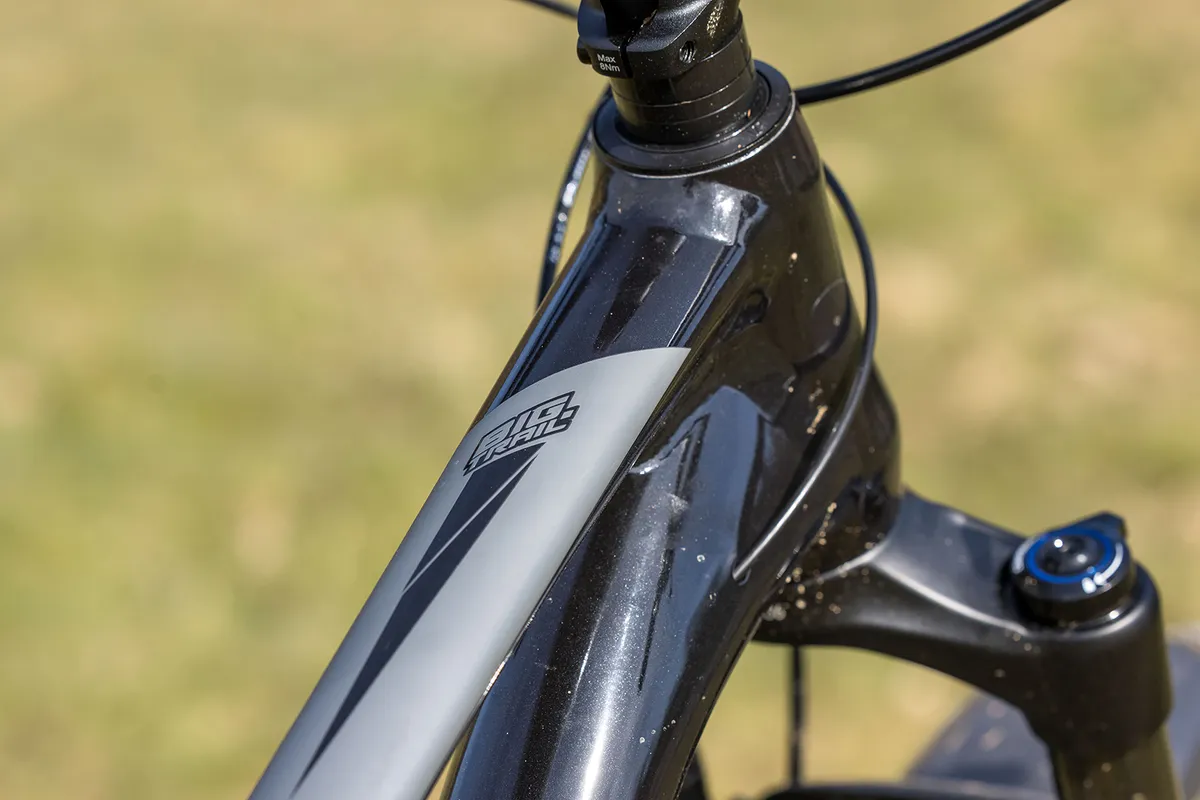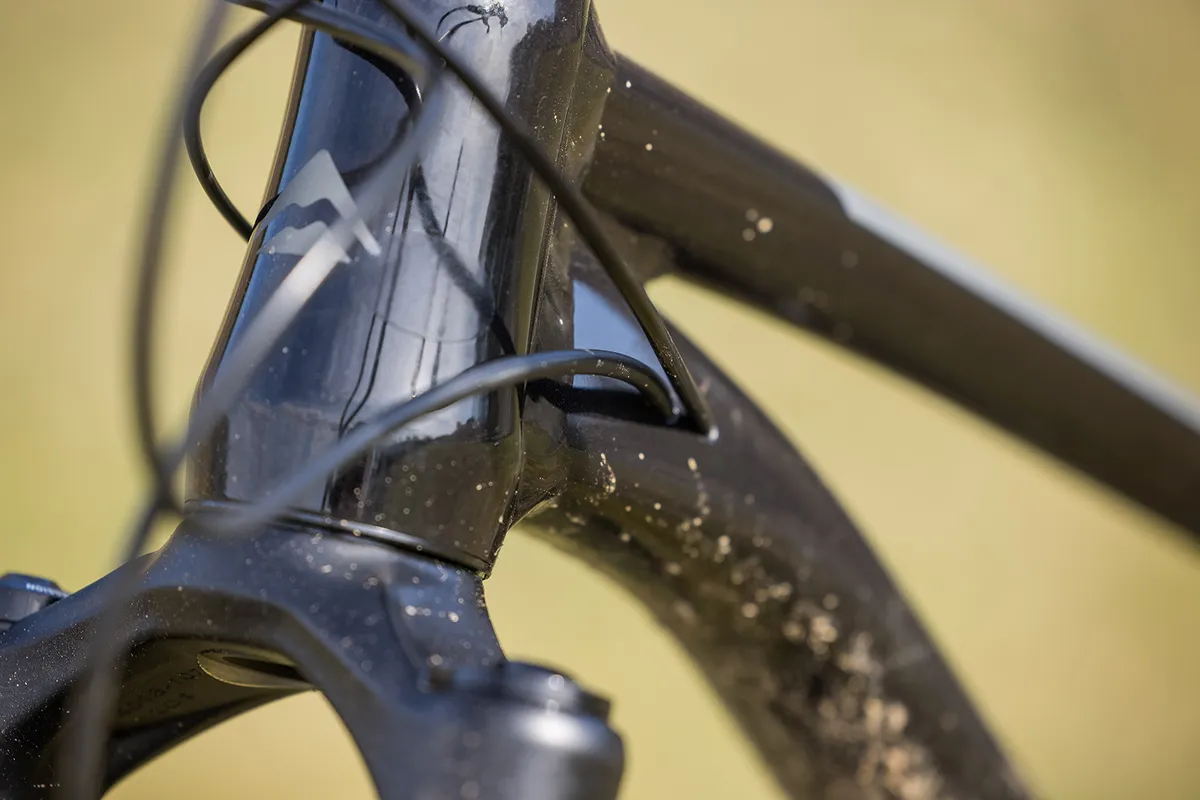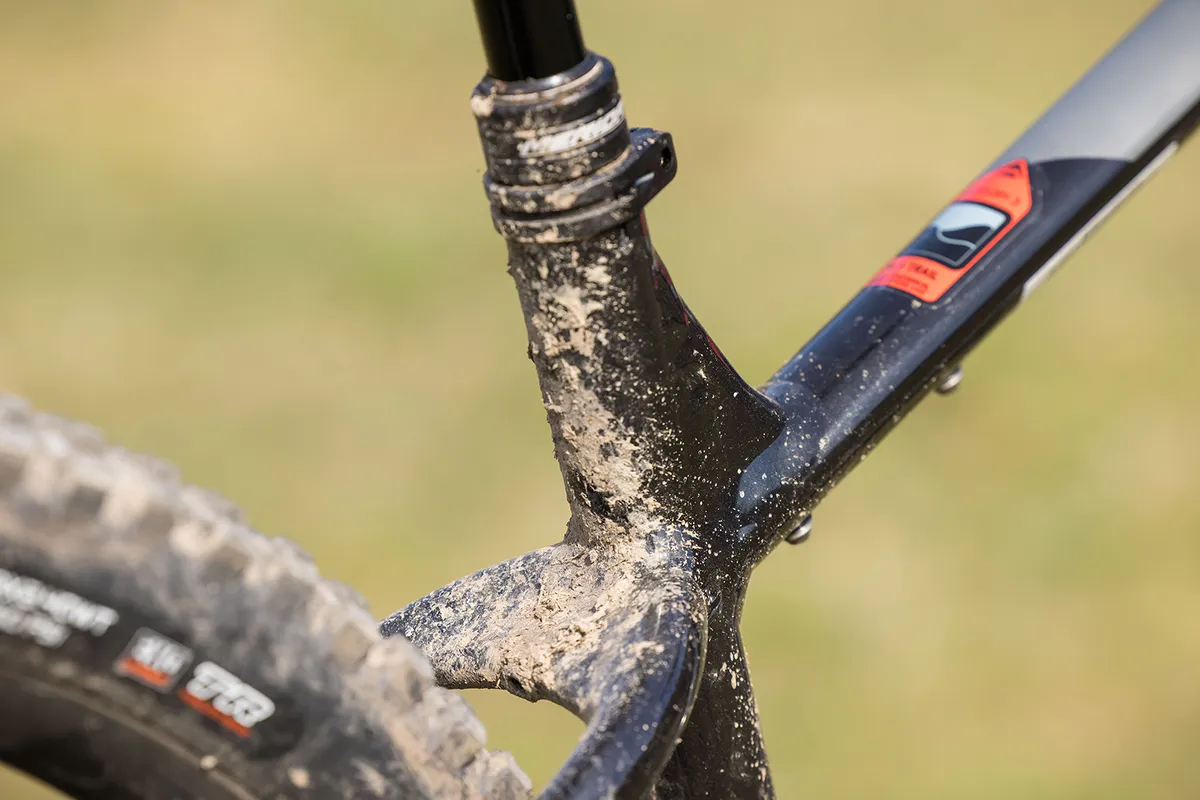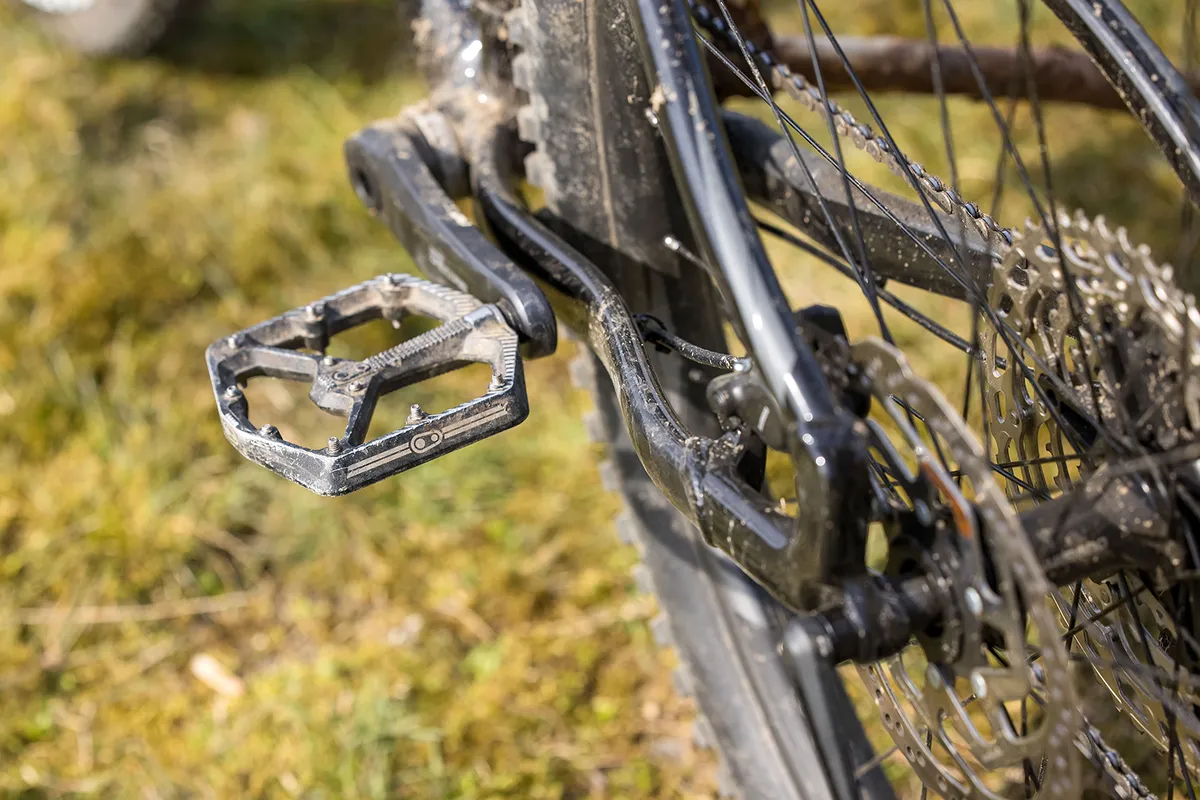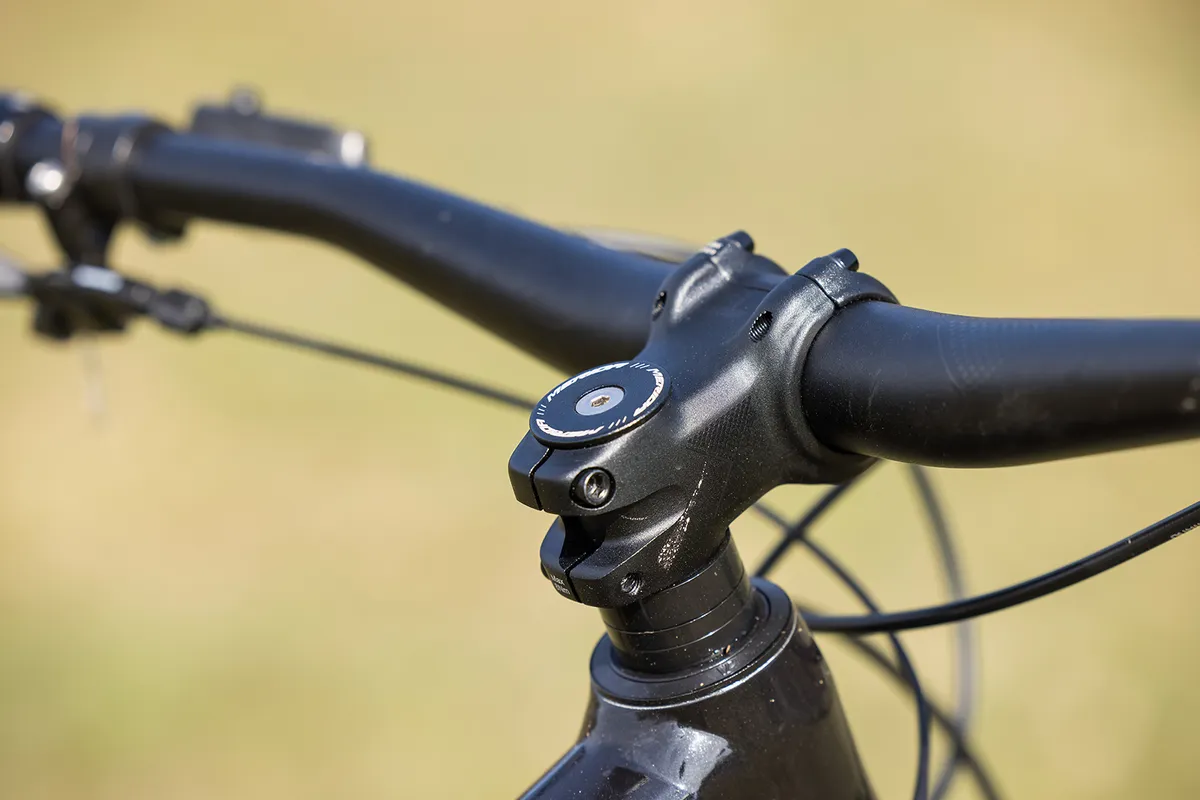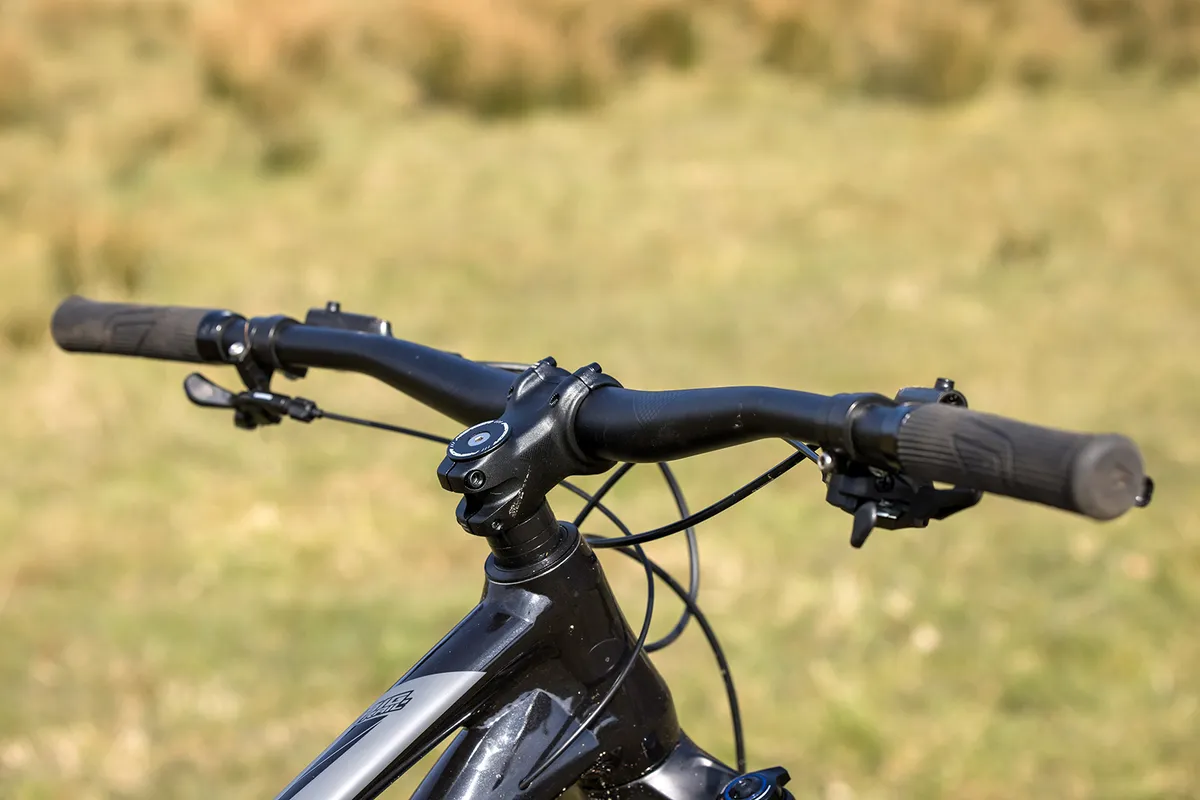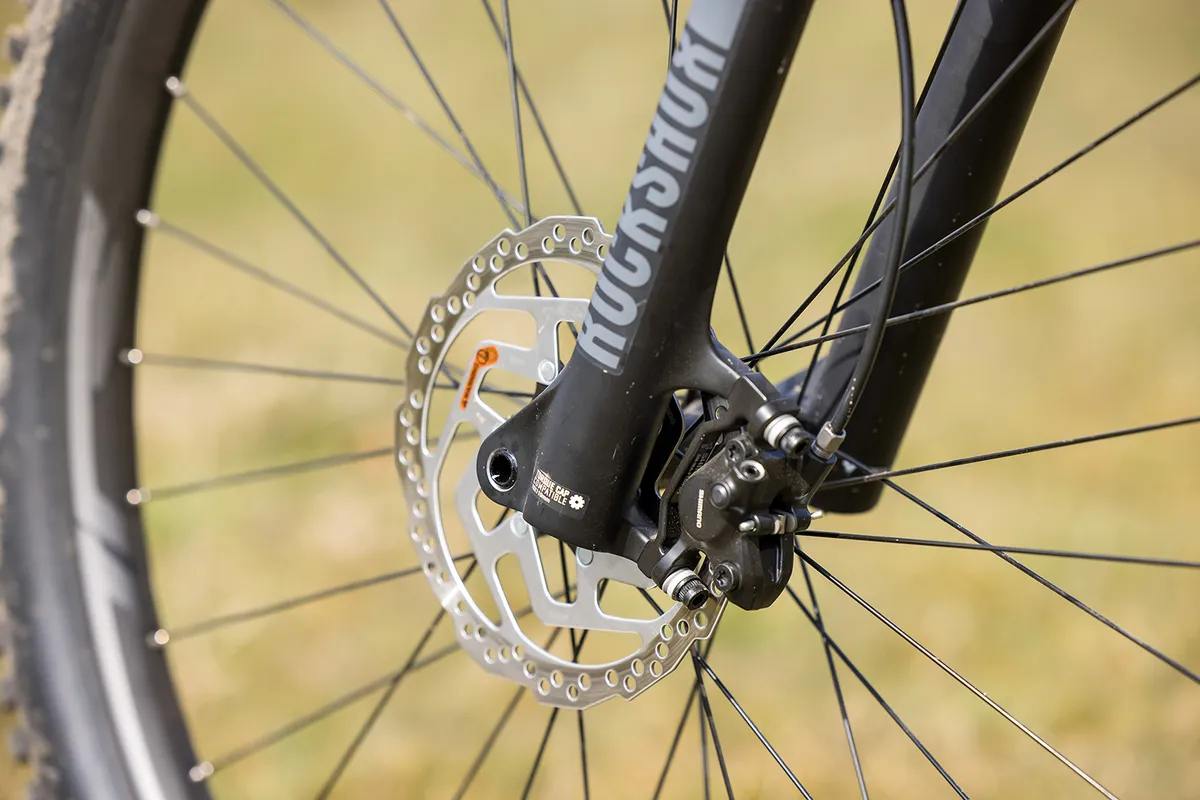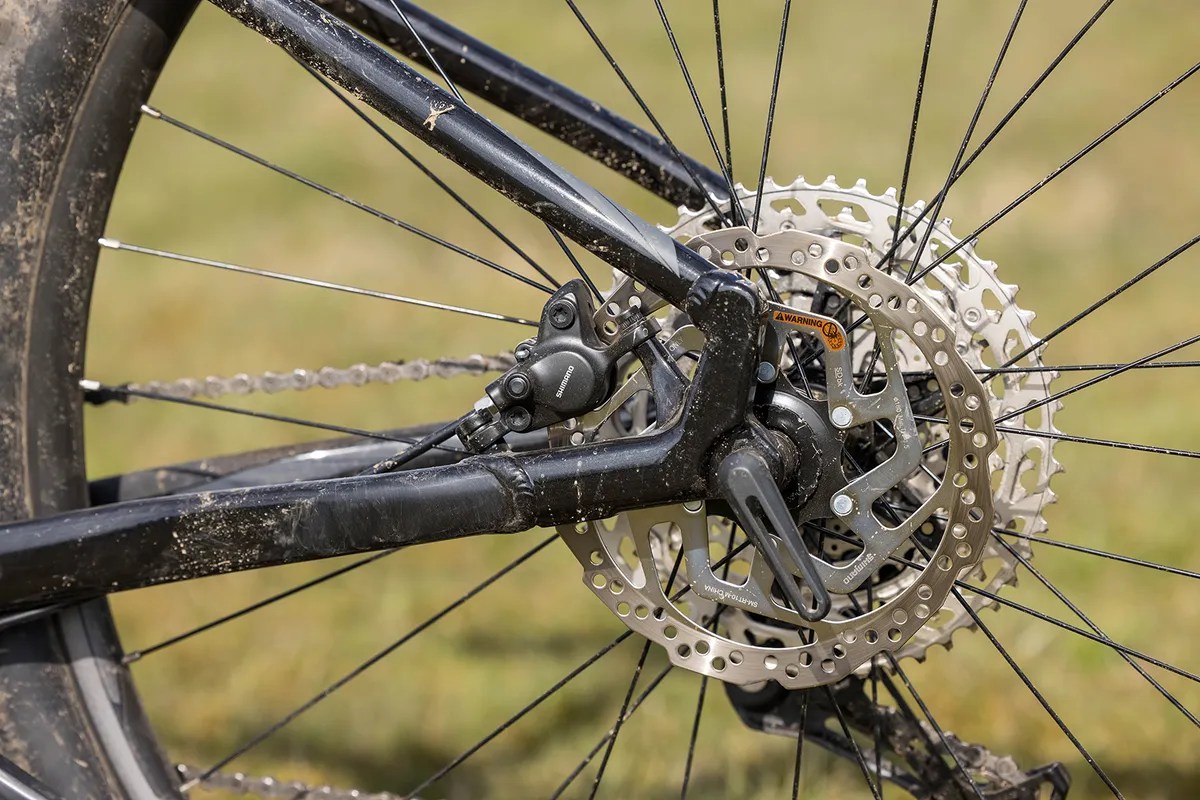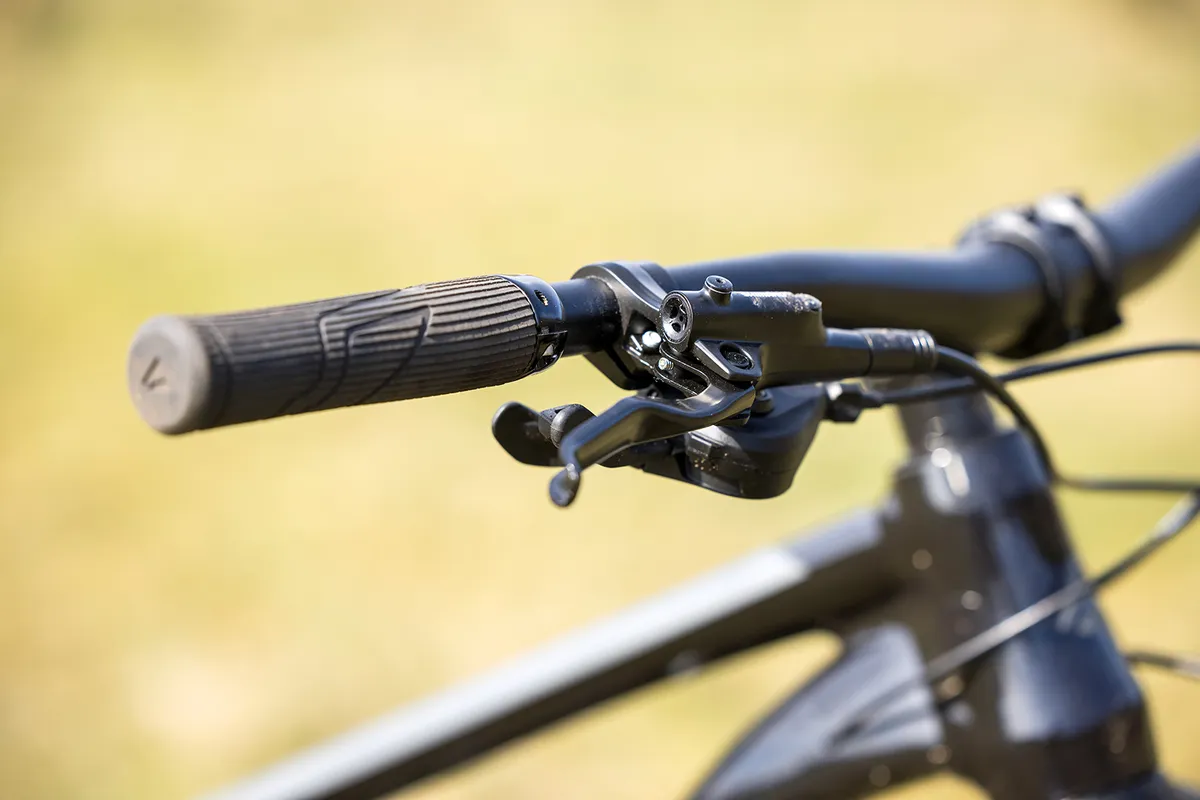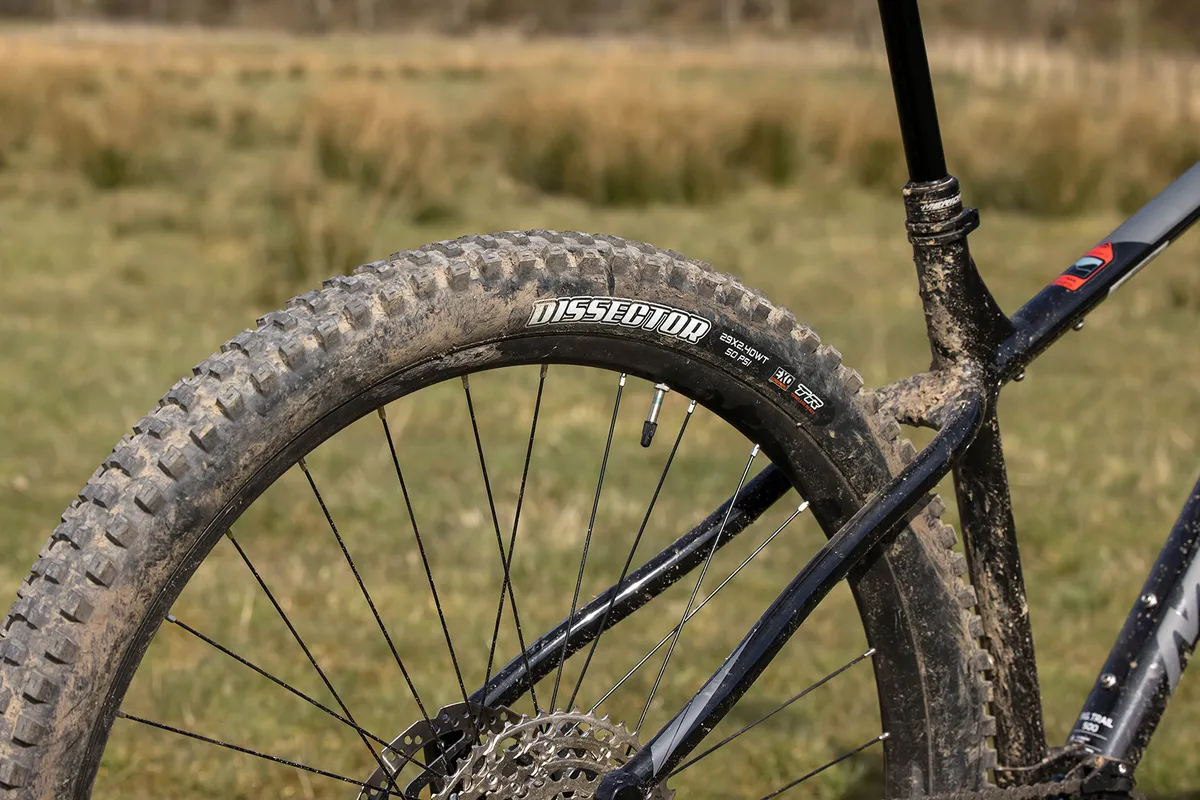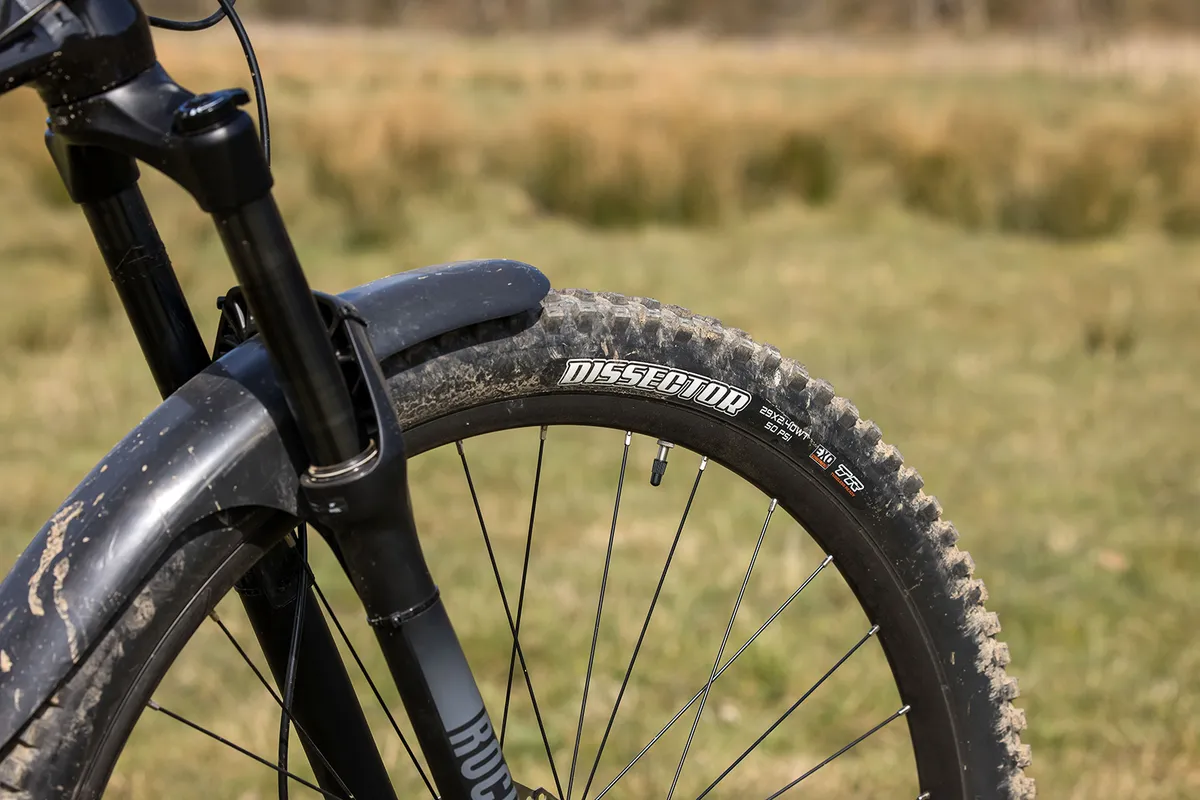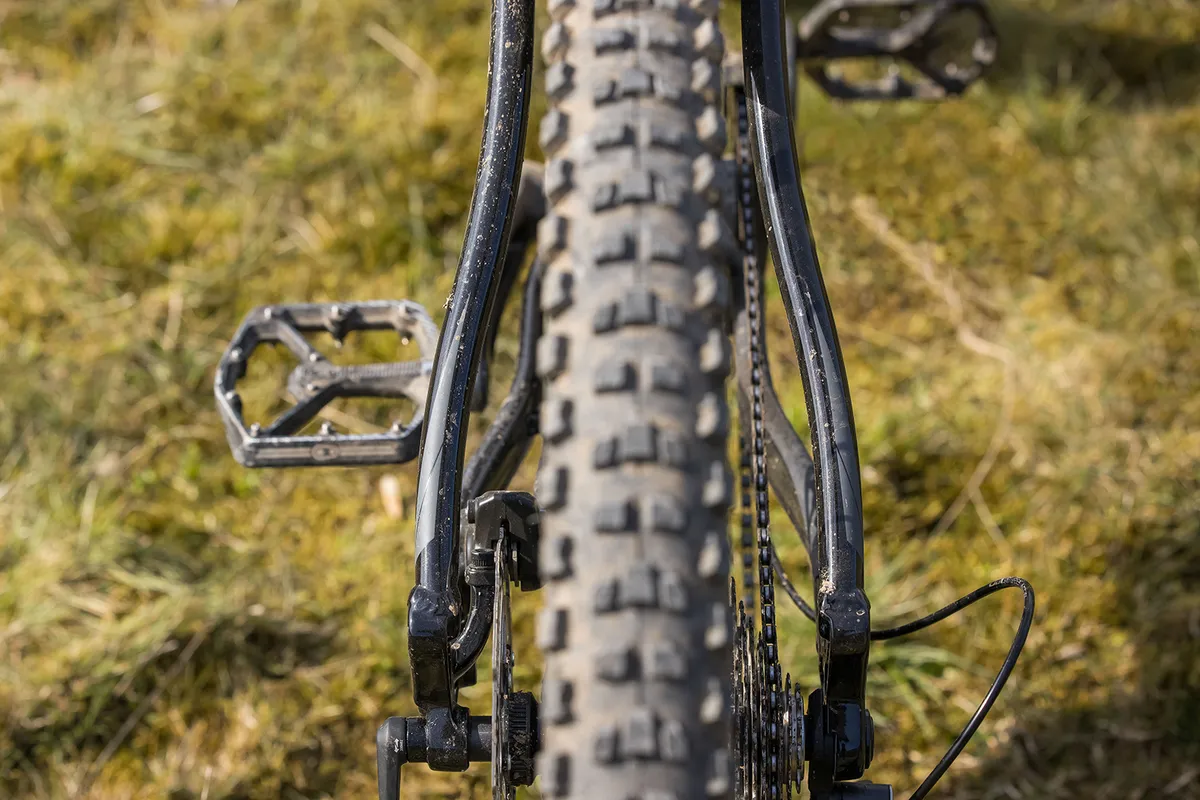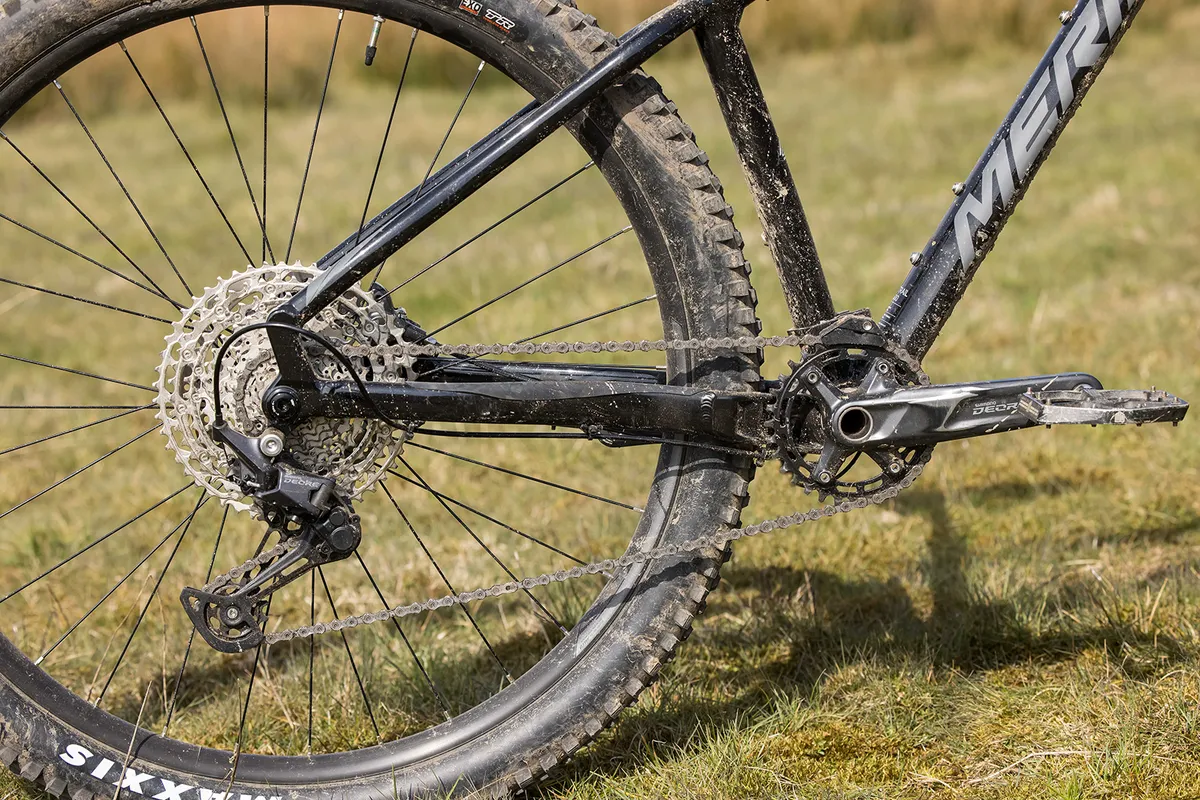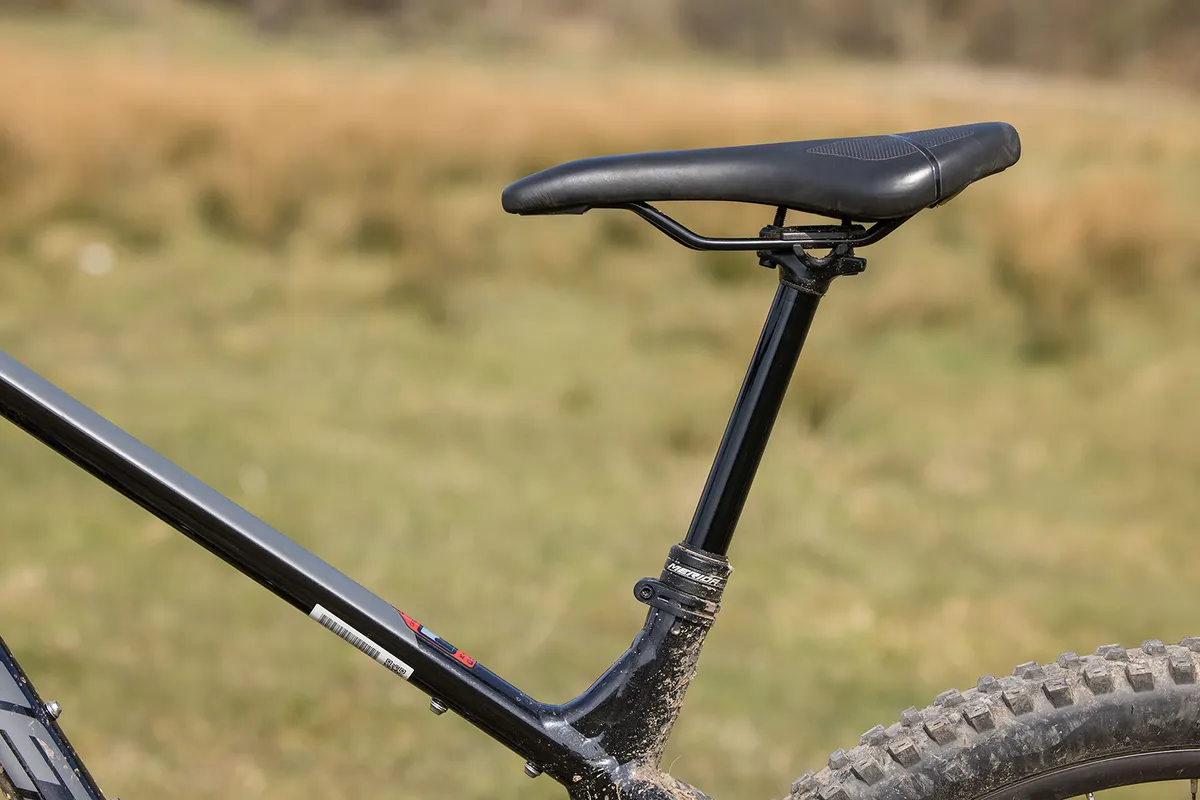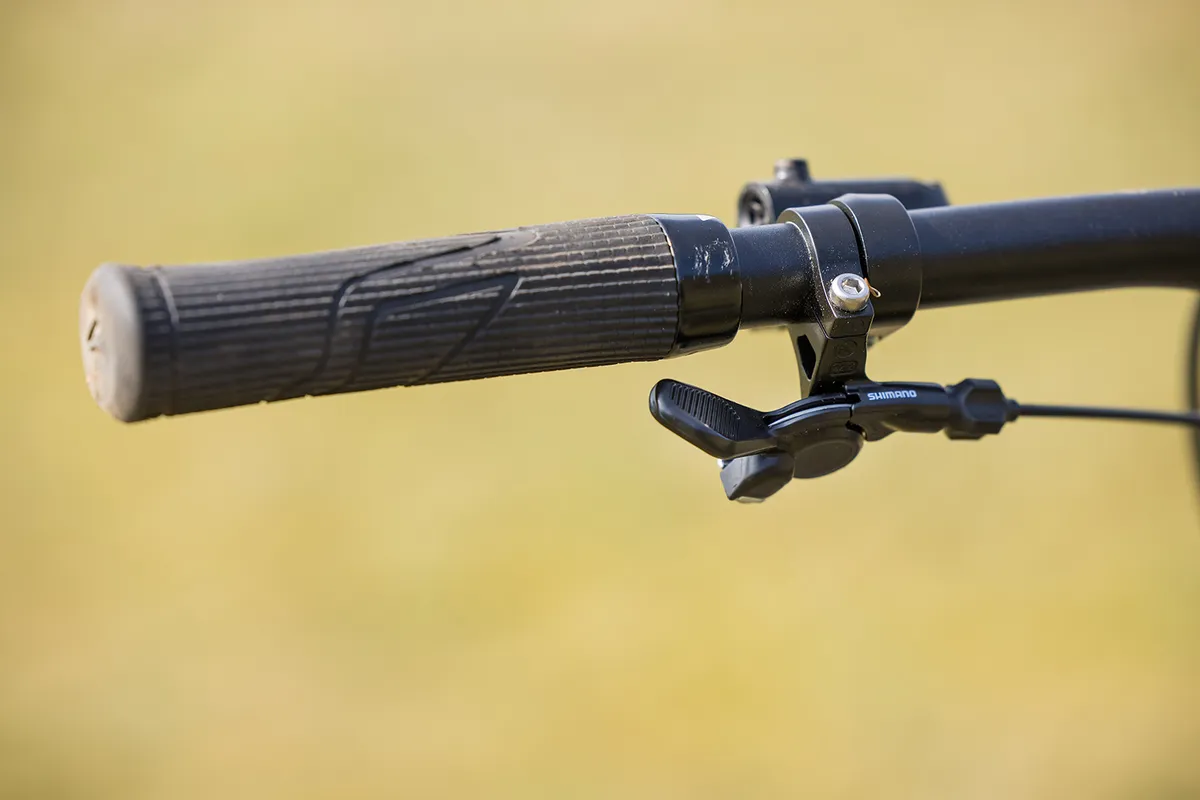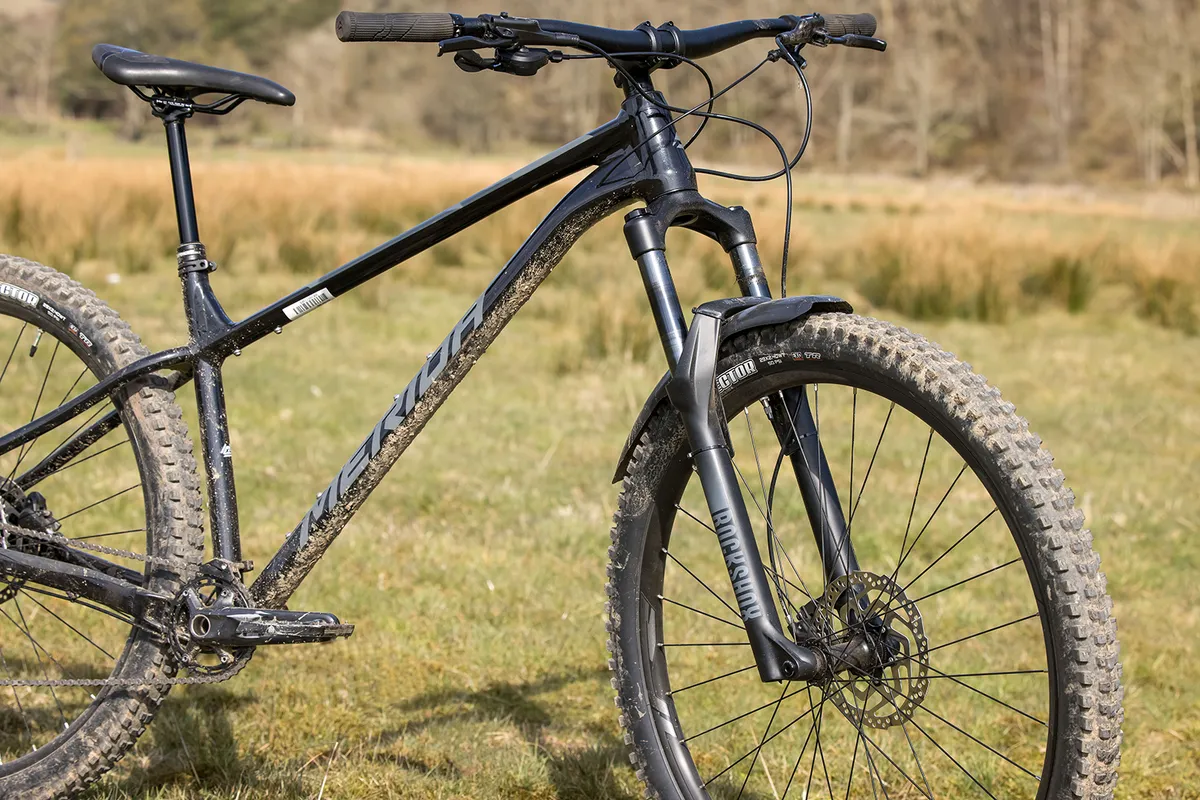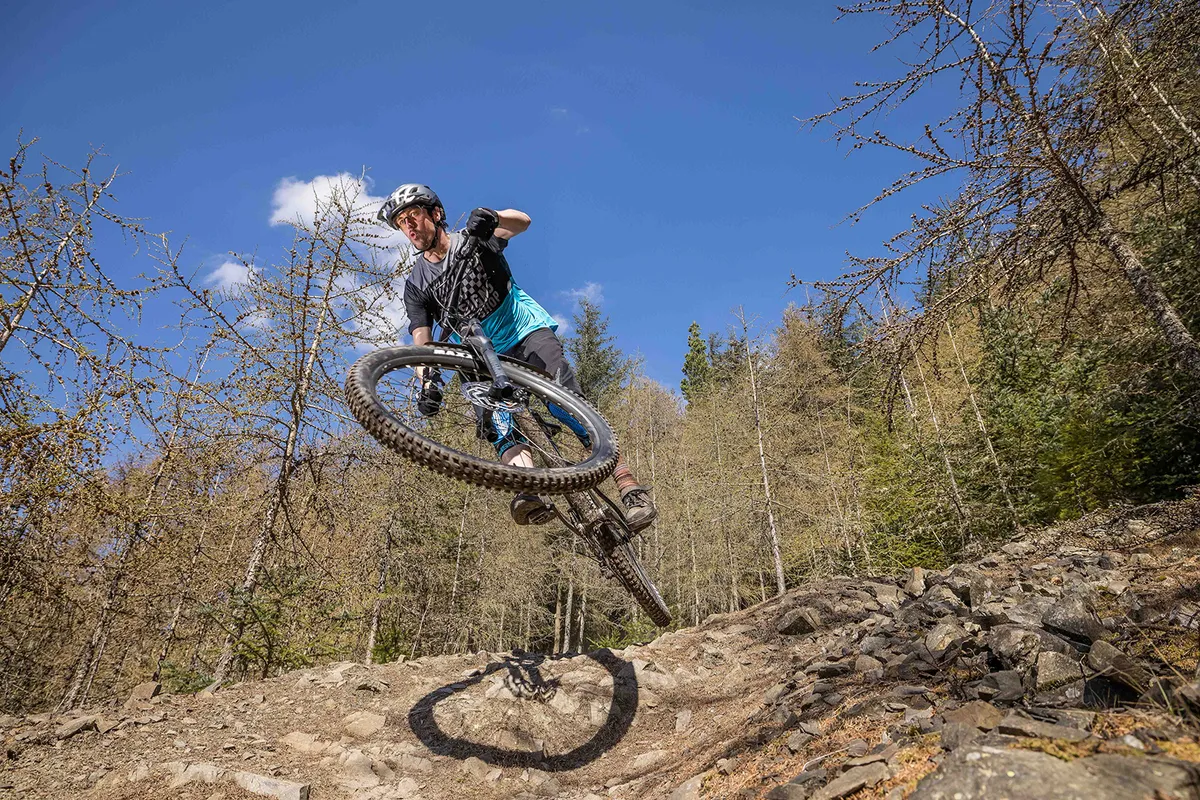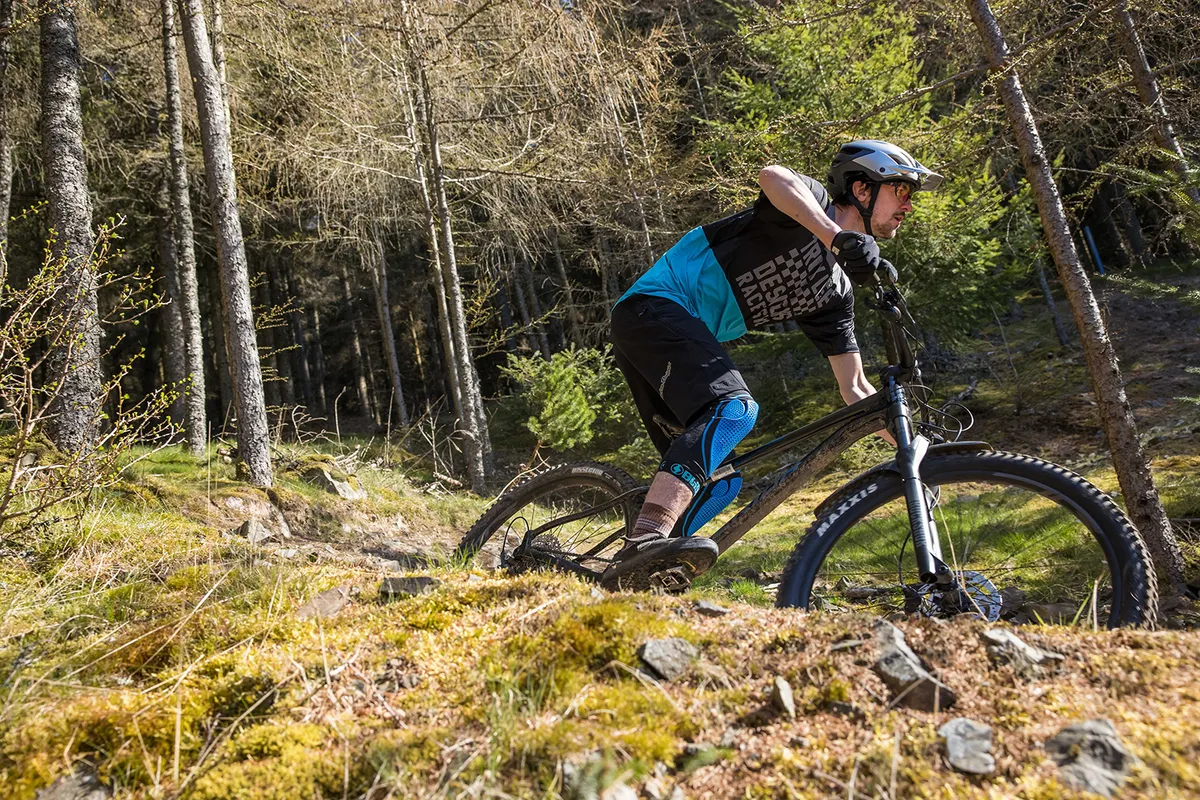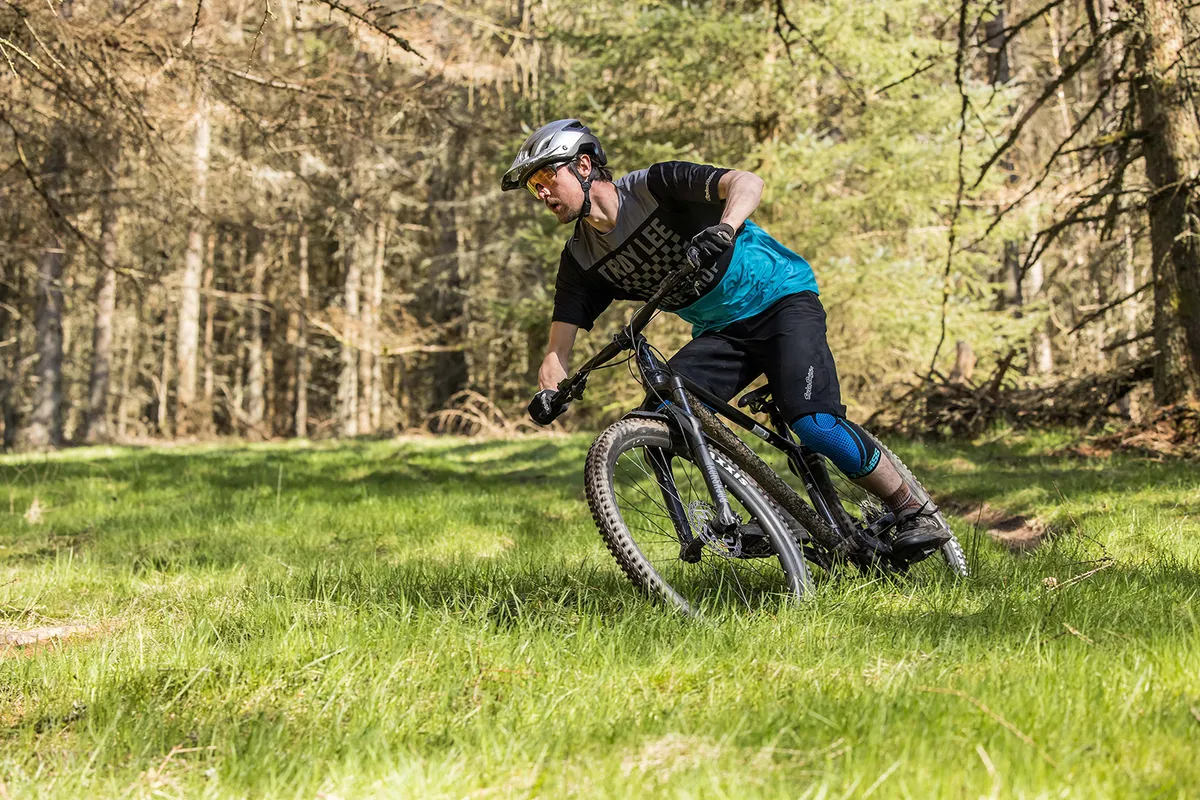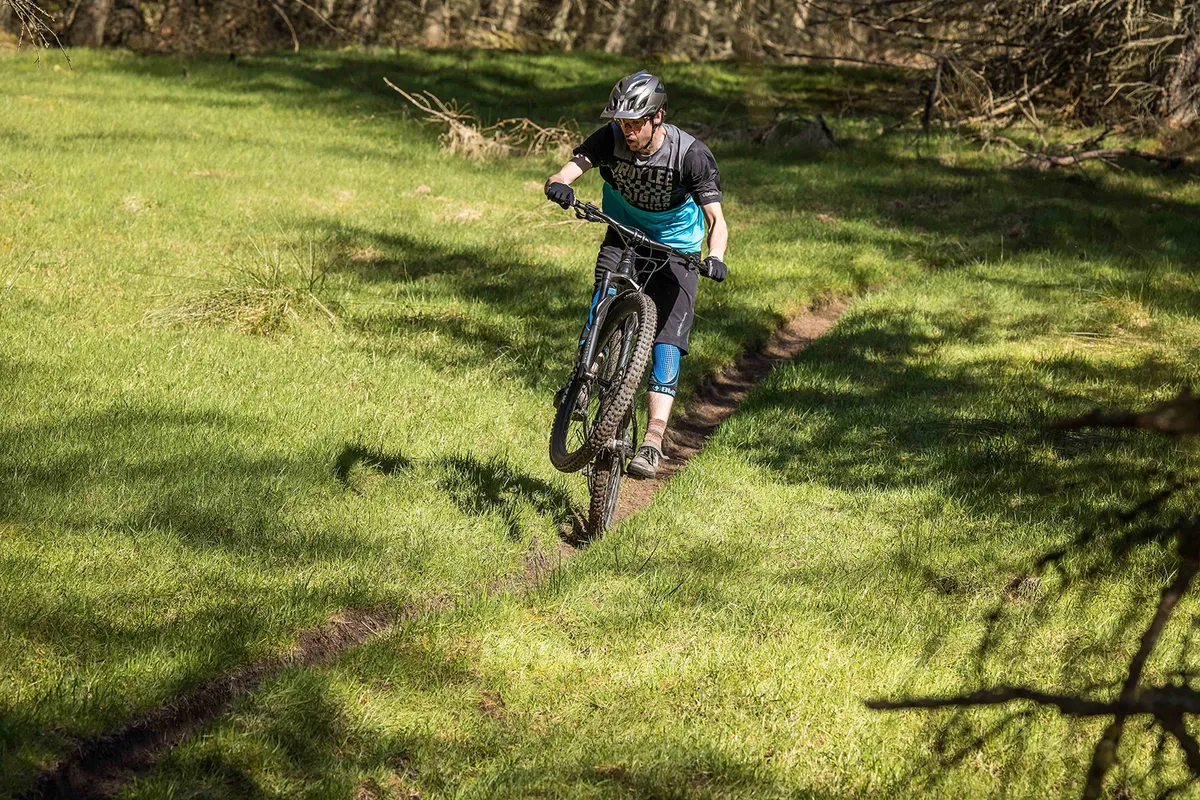Merida may not be the first brand that springs to mind when looking for an aggro trail hardtail, but if you ignore the frame size designations and focus on the numbers, the Big.Trail is a bike with great geometry and plenty of nifty details.
Built from Merida’s Racelite 61 aluminium, the Big.Trail has double-butted tubes (thicker in some areas for strength, thinner in others to save weight) and welds that are smoothed over to give a polished finish.
Cables are routed internally through the front triangle. Adding versatility, there are discreet mounts for a mudguard, pannier rack and kickstand.
Inside the front triangle are two water bottle mounts, one on the top of the down tube and a second on the underside of the top tube.
The frame uses Boost rear axle spacing, runs on 29in wheels – with clearance for up to 2.5in-wide tyres – and will take a tapered-steerer fork if you ever want to upgrade.
Merida Big.Trail 500 geometry
It’s the geometry that stands out most, though – but only if you ignore Merida’s names for the four sizes.
Look at the ‘large’ Big.Trail and it has a similar reach to the same-sized Vitus Sentier 27 and Specialized Fuse 27.5 – 455mm, 449mm and 460mm, respectively.
These figures are much shorter than you’ll find on bikes at the cutting-edge of the sport, where there’s been a move towards longer, more stable geometry.
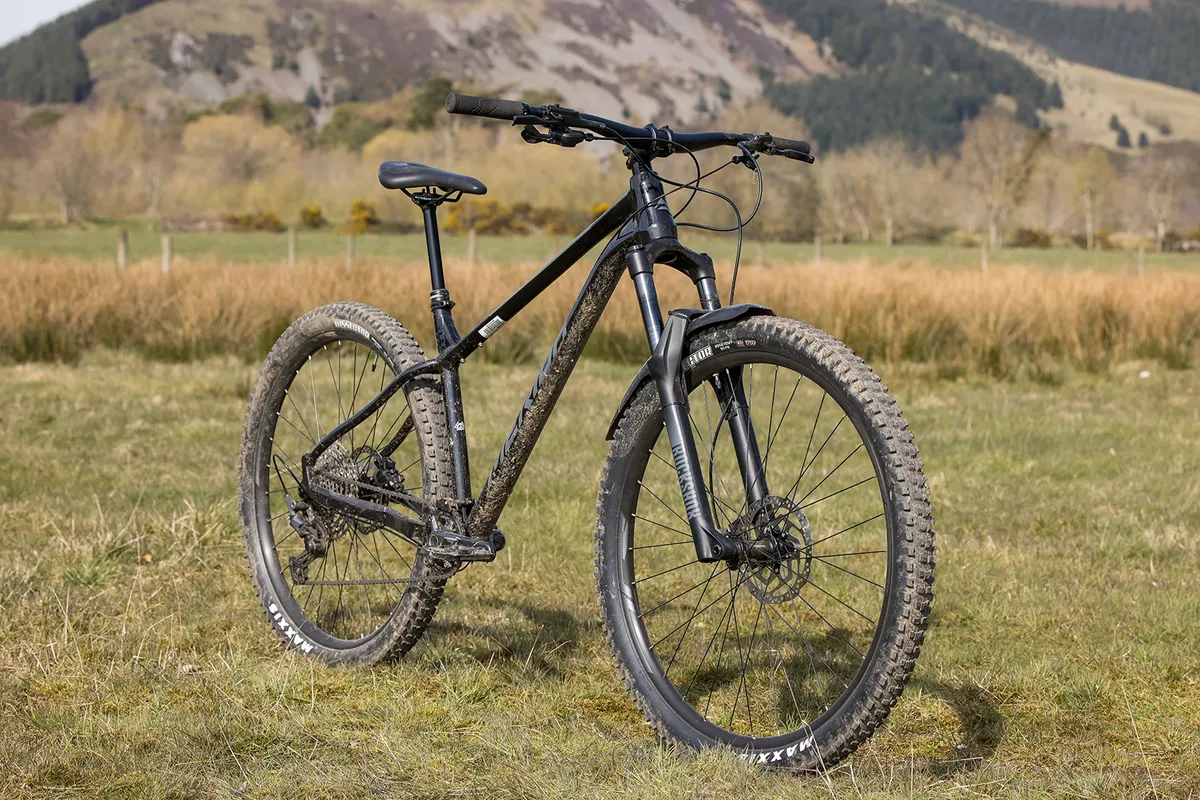
However, the Merida has an ace up its sleeve – a much shorter seat tube than those other two bikes. This means riders who’d usually ride a large – including me at 5ft 10in/178cm – can upsize to the extra-large without any worries about standover height.
In fact, even on the bigger size, the seat tube is still 33mm shorter than on a large Vitus. The payoff is a much more generous reach – 475mm, the same figure found on Merida’s One-Sixty enduro bike.
Combined with the slack 65.5-degree head angle and steep 75.5-degree seat tube angle (compared to 74 degrees on the Fuse 27.5 and 73 degrees on the Sentier 27), this means that, as long as you upsize, the geometry is much more progessive than those other two bikes.
| Seat angle (degrees) | 75.5 | 75.5 | 75.5 | 75.5 | 75.5 |
|---|---|---|---|---|---|
| Head angle (degrees) | 65.5 | 65.5 | 65.5 | 65.5 | 65.5 |
| Chainstay (cm) | 43.5 | 43.5 | 43.5 | 43.5 | 43.5 |
| Seat tube (cm) | 38 | 41 | 43 | 45 | 47 |
| Top tube (cm) | 57.9 | 60 | 62.2 | 64.5 | 67 |
| Head tube (cm) | 9.5 | 10 | 11 | 12 | 12 |
| Bottom bracket drop (cm) | 6.65 | 6.65 | 6.65 | 6.65 | 6.65 |
| Wheelbase (mm) | 1,150 | 1,172 | 1,196 | 1,220 | 1,245 |
| Standover (cm) | 71.6 | 72.3 | 72.5 | 72.8 | 78.2 |
| Stack (cm) | 63.6 | 64.1 | 65 | 65.9 | 65.9 |
| Reach (cm) | 41.5 | 43.5 | 45.5 | 47.5 | 50 |
Merida Big.Trail 500 kit
For the cash, Merida has struck an impressive balance between speccing branded kit where it’s most needed and keeping costs down by using in-house components.
Up front, there’s a RockShox Recon Silver RL fork with 140mm of air-sprung travel and externally-adjustable rebound and compression damping.
The 1x11 Shimano Deore drivetrain gets the same 51t lowest cassette sprocket as its more expensive 12-speed counterpart.
Other branded parts include Tektro M275 brakes with 180mm rotors and, crucially, tubeless-ready Maxxis Dissector tyres with the EXO Protection casing and dual-compound rubber. These are fitted to own-brand 29mm (internal) rims, built onto Shimano MT400 hubs.
Merida also provides its own 150mm-travel dropper post, 780mm bar, 50mm stem, saddle and grips. The bar stands out, with a good shape and not feeling excessively stiff like some 35mm-diameter offerings can.
Merida Big.Trail 500 ride impressions
Thanks to its long reach, there’s plenty of room to move around on the Big.Trail when attacking climbs standing up. This makes it possible to control how much grip the wheels have with deliberate changes in body position, while any unintended fore or aft movements have little to no effect on the bike’s trajectory.
As a result, there’s less chance of the rear wheel spinning and the accompanying feeling of overweighting the front wheel.
It’s a similar story when climbing seated, thanks to the steep seat tube angle. This positions you centrally over the bike, which not only improves comfort and makes pedalling easier, but also helps to reduce front wheel lift on exceptionally steep inclines, while still letting you drive plenty of grip through the back wheel.
It also means you don’t have to lower yourself towards the bar to get enough weight over the front wheel. Overall, the Big.Trail is an incredibly competent climber.
The 11-speed, 11-51t cassette provides sufficiently low gearing for the steepest climbs and, when mated to the Merida’s 32t chainring, a high enough top gear to not spin out on the descents.
With 150mm of travel, the dropper post enabled me to get the saddle in my preferred positions for both descending and ascending, and the Shimano remote was well-shaped with a light lever feel, although I’d prefer to see an I-Spec clamp to reduce bar clutter.
While the own-brand saddle is more comfortable than some, it still has a fairly convex shape, which put pressure on my soft tissue, rather than just my sit bones.
Another niggle is the shaping of the bike’s back end. Because the chainstays bend outwards close to the rear axle, they contacted my heels when pedalling. This was initially pretty frustrating, but it wasn’t hard to modify the way I pedalled to avoid hitting the frame.
With impressive small-bump performance, the Recon fork is comfortable on both the climbs and the descents. The damping feels controlled through fast, rough sections, with no noticeable compression spike.
Plenty of mid-stroke and low-speed compression support makes it easier to go fast on the descents because the front end of the bike isn’t diving into holes and when going around berms.
The fork’s stability amplifies the frame’s calm handling feel. There’s nothing frantic about how the Big. Trail descends, and you can maintain a neutral and stable body position without needing to lean back to compensate for compromised geometry. It feels quite long, but not unmanageably so, and you can always fit a shorter stem.
With none of the see-sawing motion that some shorter bikes can suffer from over bumpy terrain, there’s plenty of easy-to-control grip.
The wheels never feel like they’re skipping off the ground and the bike doesn’t clatter down the trail. Instead, it’s possible to push the tyres into the ground with conviction and confidence.
Ride smoothness is just as impressive. On the sort of steeper or gnarlier descents where you’d expect a £1,000+ hardtail mountain bike's limits to show, the Merida rides similarly to a short-travel trail bike, its wheels not getting sucked into holes or bucked about by bumps.
Admittedly, I wasn't going as fast as I would have been on a full-sus down the same trails, but the same on-bike feel was there.
It’s not a quiet bike, with a significant amount of cable rattle, chain slap and brake-pad noise on anything other than hyper-smooth trails.
I'm inclined to forgive the Merida these minor foibles, though, not least because they’re fixable – more chain slap protection can be cheaply added, cables can be secured or put in silicone tubes, and, while it’s an expensive upgrade, the brakes can ultimately be changed.
Merida Big.Trail 500 bottom line
Overall, the Big.Trail has to be one of the most capable, fun to ride and impressive bikes for this kind of money, just so long as you pick the right size.
How we tested
We put three bikes to the test to see if you can get a totally sorted, trail-slaying hooligan of a bike for around the £1k mark or if you need to spend a little more.
At around £1,000 you’re best off looking at hardtails (bikes with no rear suspension) because the parts they’re specced with are going to be much better than on an equivalently-priced full-sus bike. You can expect a wide-range 1x drivetrain, with some brands offering 12-speed set-ups.
You’re likely to find a mix of air- and coil-sprung forks at this price, the majority with basic adjustments, such as a lockout lever and rebound dial.
One of the key things to look for is upgradability. As your skills improve, you’re going to hanker for better kit, but your options will be limited if the frame isn’t up-to-date.
Keep an eye out for Boost (148×12mm) rear axle spacing and cable routing for a dropper post (if the bike doesn’t come with one), both of which will unlock changes to shed weight or improve flow.
All frames at this price will be made from aluminium alloy, but build and material quality varies. Bikes come with either 29in or 650b (aka 27.5in) wheels, with the smaller size generally found on models aimed at more aggressive riding/riders.
Also on test
- Specialized Fuse 27.5
- Vitus Sentier 27
Product
| Brand | merida |
| Price | 1849.00 AUD,1350.00 GBP |
| Weight | 14.3800, KILOGRAM (XL) - |
Features
| Fork | RockShox Recon Silver RL, 140mm (5.5in) travel |
| br_stem | Merida Expert TR, 50mm |
| br_chain | KMC X11 |
| br_frame | Double-butted 6061 aluminium alloy |
| Tyres | Maxxis Dissector Dual EXO TR 29x2.4in |
| br_brakes | Tektro M275, 180mm rotors |
| br_cranks | Shimano Deore M5100, 32t |
| br_saddle | Merida Comp CC |
| br_wheels | Merida Comp TR rims on Shimano MT400-B hubs |
| br_headset | Merida M4455 |
| br_shifter | Shimano Deore M5100 |
| br_cassette | Shimano Deore M5100, 11-51 |
| br_seatpost | Merida Comp TR dropper |
| br_gripsTape | Merida Comp EC |
| br_handlebar | Merida Expert TR, 780mm |
| br_bottomBracket | Shimano BB52 |
| br_availableSizes | S, M, L, XL, XXL |
| br_rearDerailleur | Shimano Deore M5100 (1x11) |
